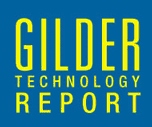
©2003
Gilder Technology Report,
a joint publication of Gilder Publishing LLC and Forbes, Inc.
All Rights Reserved.
The Editors
Nick Tredennick
 |
Dr.
Nick Tredennick is Editor of the Gilder Technology Report. He is an
advisor and investor in numerous pre-IPO startups and is a member
of technical advisory boards for several companies including Ascenium,
Impinj, QuickSilver Technology, Terakeet, and the Venture X Group.
He is on the editorial advisory board for several technical publications
including IEEE Spectrum and Microprocessor Report. He is an IEEE representative
to the Engineering Accreditation Commission (EAC), which oversees
university accreditation for all engineering programs. He was a member
of the Army Science Board for six years and is a registered professional
engineer.
Dr. Tredennick was named a Fellow of the IEEE for his contributions to microprocessor design. He has over thirty years experience in computer and microprocessor design, holds nine patents, and has more than fifty technical publications, including a textbook on microprocessor design (Microprocessor Logic Design). He was a Senior Design Engineer at Motorola, a Research Staff Member at IBM's Watson Research Center, and Chief Scientist at Altera. Dr. Tredennick did the logic design and microcode for Motorola's MC68000 and for IBM's Micro/370 microprocessors. He has taught at the University of Texas at Austin and the University of California, Berkeley. He has been a founder of several Silicon Valley startups. |
George Gilder
 |
George
Gilder is Chairman of Gilder Publishing LLC, located in Great Barrington,
Massachusetts. He is also a Senior Fellow at Discovery
Institute where he directs Discovery's program on high technology
and public policy. |
|
The
investigation into wealth creation led Mr. Gilder into deeper examination
of the lives of present-day entrepreneurs, culminating in many articles
and a book, The Spirit of Enterprise (1986). The book was revised
and republished in 1992. That many of the most interesting current
entrepreneurs were to be found in high technology fields also led
Mr. Gilder, over several years, to examine this subject in depth.
In his best-selling work, Microcosm (1989), he explored the quantum
roots of the new electronic technologies. A subsequent book, Life
After Television , published first as a Whittle Communications monograph
and then published by W.W. Norton (1992), and updated and republished
in 1994, is a prophecy of the future of computers and telecommunications.
This book is a prelude to his latest book on the future of telecommunications,
Telecosm (2000). Click Here for the official George Gilder Archives at the Discovery Institute |
